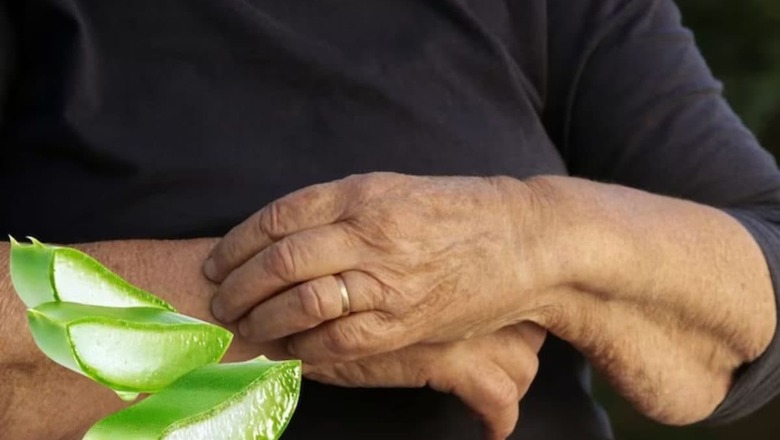
views
As individuals age, their skin tends to lose its elasticity, resulting in sagging hands. Unhealthy eating habits and daily routines are often implicated in this process. Additional factors such as insufficient water intake, smoking, pregnancy, weight loss and the use of specific skincare products can contribute to these symptoms.
Despite attempting various remedies, finding relief can be challenging. However, including preventive measures during early age may decrease the chances of addressing this issue in old age. Dr Preeti, a Dermatologist at Sanjay Gandhi Memorial Hospital in Delhi, imparts practical insights into effective measures for skin tightening.
Dermatologist Dr Preeti says that massaging your hands can be beneficial in addressing the issue of loose skin. Utilising oils rich in Vitamin E, such as olive oil or coconut oil, is recommended for this purpose. Dermatologists suggest including aloe vera helps maintain tightness in the skin. This practice stimulates collagen production, offering relief from loose skin problems.
Different options are available for dealing with loose skin, such as bananas, cucumbers, pineapples, coffee ground scrubs and honey. Additional approaches, including exercise, using creams, taking supplements, weight loss and massages, are suggested for tightening loose skin.
As the ageing process unfolds and skin elasticity decreases, loose skin can become a concern. Engaging in regular exfoliation with gentle exfoliants like sugar or oatmeal is also recommended to tighten the skin by removing dead skin cells.
Dermatologists suggest using a green tea pack on your hands for skin tightening.
Including pumpkin, sunflower seeds, flaxseed and chia seeds in the diet is recommended by experts to boost estrogen levels and promote skin tightening. Dr Preeti suggests using cucumber to keep the skin hydrated- grate it, apply it to your hands, let it dry for 10 minutes, and then wash your hands.
Causes of Loose or Saggy Skin
As per research highlighted in the Journal of Cutaneous Pathology, elastin, a crucial protein ensuring skin elasticity and resilience, assumes a pivotal role. The ageing process leads to a decline in elastin levels, causing a reduction in softness and flexibility and, consequently, resulting in loose skin. Moreover, a decrease in collagen, loss of subcutaneous fat, and anatomical changes contribute to the contraction of fat pads beneath the skin. Common places people experience loose skin are the stomach, face, neck, buttocks, arms and legs.




















Comments
0 comment